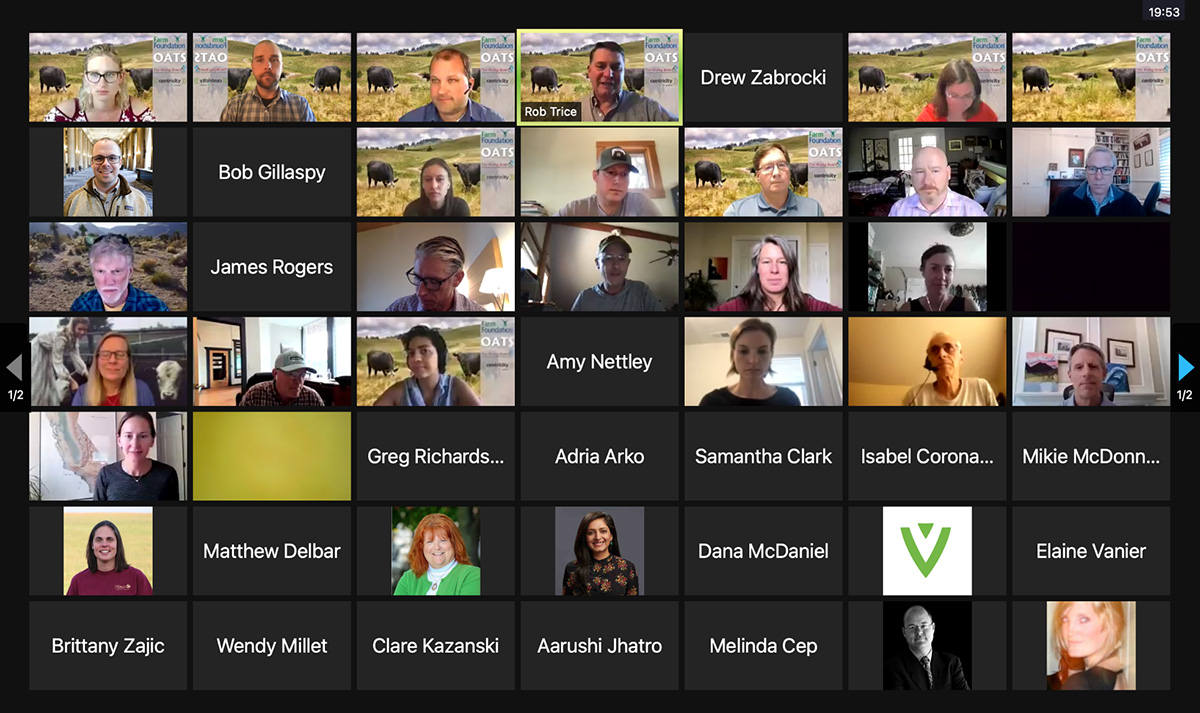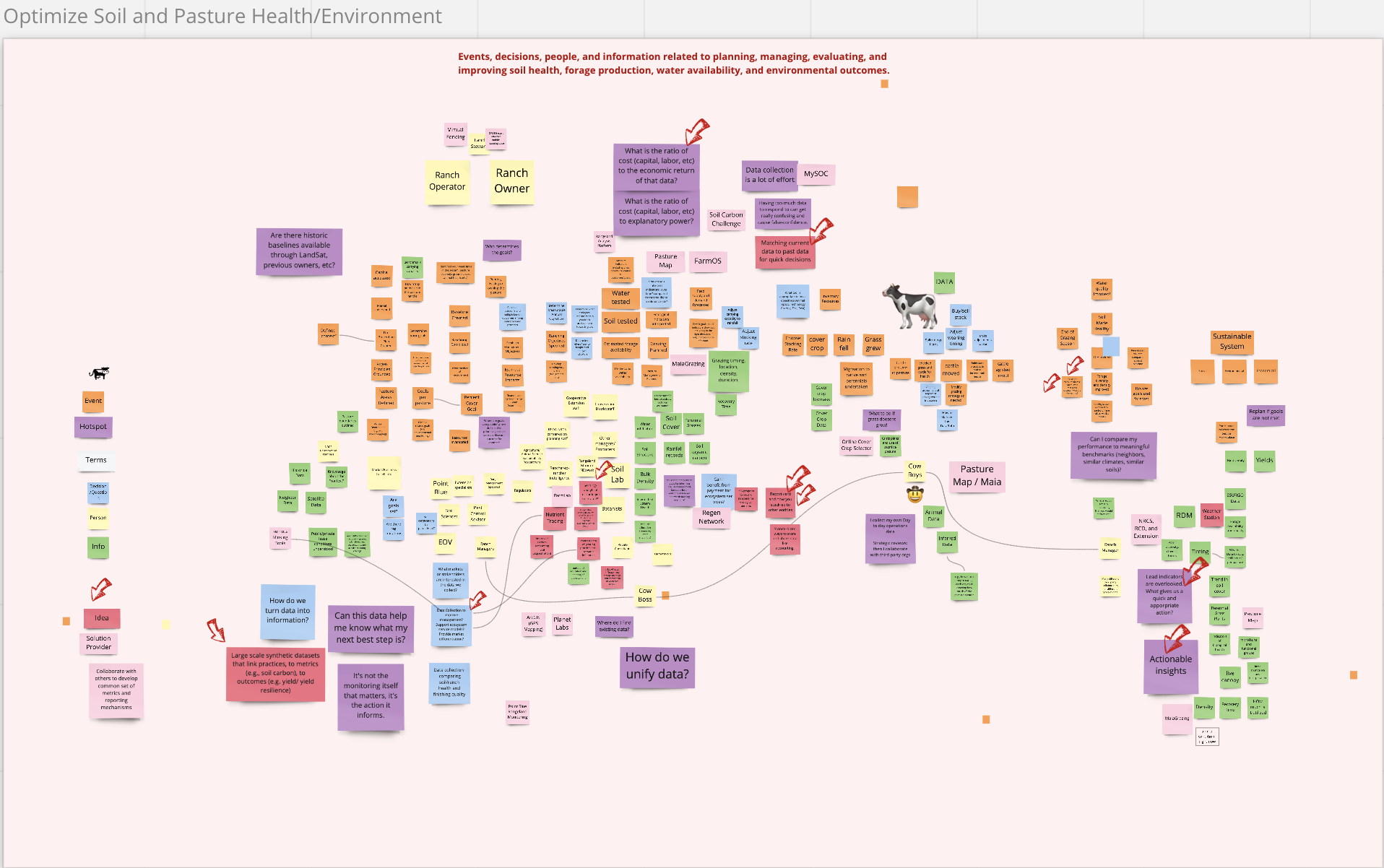One particular area we have been exploring lately is data interoperability—the ability to exchange and make use of data between devices and systems.
The Regen Ranching Data Round Up

08/31/2021
By: Megan Shahan
 As a learning laboratory, TomKat Ranch engages in a range of activities designed to support and scale the science and practice of regenerative ranching. We carefully monitor the results of our management, trials, and experiments through our partnership with Point Blue Conservation Science. This monitoring gives credibility to our findings and also lets us know when we should adapt, adjust, or change course altogether. In addition to making our data and findings publicly available, we also run trials for technologies that can decrease the cost of ecological monitoring and other forms of data collection, such as various pasture management tools, handheld soil spectrometers for testing soil carbon in the field, and remote sensing to test the effectiveness of analyzing bare ground and plant diversity.
As a learning laboratory, TomKat Ranch engages in a range of activities designed to support and scale the science and practice of regenerative ranching. We carefully monitor the results of our management, trials, and experiments through our partnership with Point Blue Conservation Science. This monitoring gives credibility to our findings and also lets us know when we should adapt, adjust, or change course altogether. In addition to making our data and findings publicly available, we also run trials for technologies that can decrease the cost of ecological monitoring and other forms of data collection, such as various pasture management tools, handheld soil spectrometers for testing soil carbon in the field, and remote sensing to test the effectiveness of analyzing bare ground and plant diversity.
One particular area we have been exploring lately is data interoperability—the ability to exchange and make use of data between devices and systems. TomKat Ranch and our partners collect data on soil, birds, rainfall, streams, pasture management and production, animal performance and more. None of this data is (easily) connected electronically, a common struggle for ranchers and farmers across the country.
As such, we were glad to participate in the Regenerative Ranching Data Round Up event, hosted by the Farm Foundation and Purdue University’s Open Agriculture Technologies and Systems (OATS) Center, on Tuesday, August 24th, for an activity broadly known as “event storming.” The Regenerative Ranching Data Round Up gathered around 100 stakeholders from across the regenerative beef value chain (with participants from around the globe!) to jointly identify actions, actors, and data exchanges that occur, or need to occur—from soil to supper, ranch to ribeye.
Collaborators at the event brainstormed events, decisions, people, and information related to planning, managing, evaluating, and improving four areas related to regenerative ranching:
- Soil and pasture health/environment
- Cattle/herd management
- Daily logistics/business success
- Certification/regulatory
Events, decisions, people, and information related to planning, managing, evaluating, and improving soil health, forage production, water availability, and environmental outcomes.
The Farm Foundation will share the resulting supply chain map publicly to benefit anyone interested in solving a data challenge related to producing regenerative beef, as well as the identified data challenges which will be tackled as a next step to help ranchers and their ecosystem partners achieve success and scale adaptive planned grazing as a regenerative agriculture practice. Visit their website to learn more.
